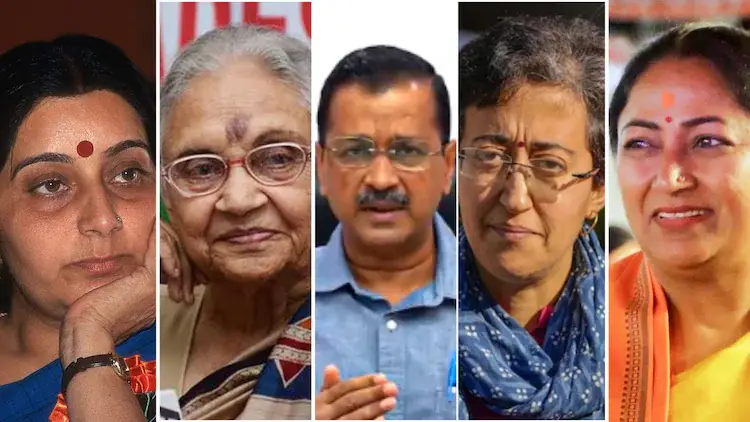New Delhi: Following an 11-day suspense, the Delhi political drama is now over. Shalimar Bagh’s first-time MLA, Rekha Gupta, was unanimously elected yesterday to lead the BJP legislative party. She is Delhi’s ninth chief minister. Gupta succeeded Sushma Swaraj, Sheila Dikshit, and Atishi as Delhi’s fourth female leader. With the BJP making a comeback after a 27-year hiatus, this was a momentous occasion in the history of the nation’s capital.
An Epochal Appointment
Rekha Gupta’s nomination was put forth by BJP MLAs Pravesh Verma, Vijender Gupta, and Satish Upadhyay and endorsed by Rajkumar Chauhan, Ashish Sood, and Manjinder Singh Sirsa. This unanimous decision concluded days of suspense about the leadership of the BJP government in Delhi. Gupta, once a councillor and later the president of the Delhi University Students’ Union (DUSU), is now responsible for overseeing Delhi.
Nonetheless, her ascent to prominence has been fraught with challenges. Despite the BJP having nominated her from Shalimar Bagh twice previously and experiencing defeat, the party persisted in its confidence in her and nominated her for a third time. She was successful this time, resulting in significant changes to her fortunes as she got the job to lead the party in the Assembly.
Delhi and Its Intrinsically Feminist Leadership
Sonia Gandhi served as president of the Congress party for 19 years, from 1998 till the 2019 general elections, and is among a select group of influential women in the city. Although her reign was brief, Sushma Swaraj became the inaugural female Chief Minister in 1998. Sheila Dikshit, who served as Delhi’s chief minister for 15 years, emerged as one of the capital’s preeminent leaders, facilitating transformation throughout the expansion of the Metro network. Atishi served as Delhi’s third female Chief Minister for just 150 days, subsequently representing exclusively the Aam Aadmi Party (AAP).
Her ascension to cabinet minister exemplifies the party’s acknowledgement of the increasing importance of women in Delhi politics. This remarkable ascent from a university student of politics to the Chief Minister’s position exemplifies her determination and the BJP’s strategy of elevating women to prominent roles in governance.
What is the rationale for women serving as chief ministers?
It is hardly coincidental that women Chief Ministers are favoured in Delhi. Women voters have emerged as a pivotal influence in shaping electoral results, a reality acknowledged by political parties over time. The BJP’s decisive triumph in the 2025 Assembly elections was facilitated by women voters.
He asserted that women, constituting a significant portion of the vote, will likely be drawn to Gupta due to his modest and accessible persona. The BJP perceives her appointment as a tactical manoeuvre to secure its influence over women voters, who have become a significant electoral force in India, in anticipation of the 2024 elections.
The Path Forward
Rekha Gupta has assumed leadership at a pivotal moment for Delhi. Numerous difficulties confront the national capital, ranging from pollution and infrastructure to women’s safety and economic recovery. Observing how her administration addresses these matters while striving to fulfil the BJP’s commitments to effective governance and development will be intriguing.
Walking with the aspirations of millions as Gupta, Delhi’s fourth female Chief Minister, her journey from student leader to attaining the highest position exemplifies endurance and determination. Her ability to meet the expectations of her party and constituents remains uncertain, yet it is undisputable that the influence of women continues to shape the political landscape of Delhi.



Comments are closed.